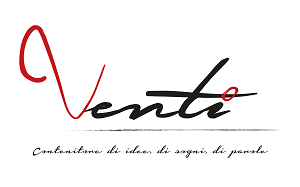As you could verify during the last months, the pandemic emergency had radically transformed our spare time, especially about our customs and preferences. The consequences of lockdown – that has also involved cinemas, theaters and concert halls – have designed a brand new scenario for the whole cultural industry: considering the stop of the traditional channels of promotion and distribution, many artists, directors and musicians have tried several opportunities to publish and share their albums, their movies and their ideas through streaming platforms, on-demand services and, despite a small percentage, T.V. This strategy was also followed by a significant part of Italian film producers and directors, that didn’t wait for the re-open of cinemas and then decided to offer their movies directly to the major TV and streaming players, like Netflix, Amazon Prime and Sky Primafila, regarding the pay-per-view market. Even if the audience could select and watch films among some premieres, results weren’t much satisfying, especially for two reasons: on one side, the audience didn’t appreciate the movies offered – mostly easy comedies which appeared granted and repetitive; on the other side, the youngest side of share preferred to spend his free time with old and new series, connecting with the OTT platforms. This disappointing option has persuaded other directors to postpone their films’ release, even if they were ready before the lockdown. For example, Carlo Verdone, one of the most popular actors and directors of the Italian movie factory, chose to delay the debut of his last work, Si vive una volta sola, because he wants to keep a close relationship with the owners and the audience of cinemas. His decision opened a debate about the future of the seventh art: how can we appreciate movies into halls and arenas that will be adapted to contain the Coronavirus disease? Moreover: in light of the recent experience with streaming services – including Disney+, whose debut in Italy coincided with the health emergency’s peak – cinemas will have a future? It’s so difficult to give an exact answer because we can’t value the severe consequences of COVID-19 in a long period.
Cinetel – the society that picks up and re-elaborates data about box-office returns – has recently released that a little revival signal should give a precious hand to the entire sector: the encouraging success gained by Tenet, one of the most expected premieres of the cinema season. The last Christopher Nolan movie had been cashed over 3 million of euros since the debut across the cinemas occurred on the 27th of August.
This is not the only positive voice to report: during the first week of September, in fact, another blockbuster as After 2 – the second cinematographic chapter of the popular series of novels loved by teen-agers – conquested a relatively successful reply from the audience, with 1.5 million of euros totalized in the very first days of scheduling.
However, we have to judge this news with obliged prudence: first of all, both Tenet and After 2 were announced, such as the possible hits at the box-office on which producers, dealers and owners have focused all their expectations after lockdown. In addition, we should ask ourselves whether these results will be achieved by the independent and art films, as well as the Italian movies.
The box-office response before the re-open of cinemas suggests there are only a few titles that indeed are behind the American blockbuster: for example, the last Gabriele Muccino’s direction, Gli anni più belli, has collected an acceptable result, but we have to remember that this movie first appeared before the lockdown, in February. If we broaden our vision to the art movies, one of those that paid a huge toll to the pandemic emergency is undoubtedly Volevo nascondermi, played by Elio Germano and directed by Giorgio Diritti.
Scheduled in the last days of February, the bio-pic dedicated to the painter Antonio Ligabue has received very little attention at his return across Italian cinemas. Given this uncertain situation, it’s hard to make predictions and screenings about the near future: all the insiders don’t know what could be the audience’s behaviors in the next months, which are traditionally essential for the entire factory. A possible boost for owners and film lovers could be given by the premieres that will be proposed during the ending-summer festival, as Venezia and Cannes.
Despite the substantial absence of American productions, the Biennale di Arte cinematografica is unique for both art movies, mostly coming from Eastern Europe, Asia and Italian directors. Beginning with Luca Guadagnino – who has presented his doc about the fashion stylist Salvatore Ferragamo, Salvatore – Shoemaker of dreams – and Daniele Luchetti, scheduled out of competition as Guadagnino with Lacci, played by Luigi Lo Cascio and Alba Rohrwacher. Could these titles restore a sector that has been lost hundreds and hundreds of millions since the first weeks of emergency?
These are weak rays of sunshine, but, anyway, another sign of faith for the future of cinema is undoubtedly the large participation at the outdoor retrospectives organized during the last summer both in the capital cities and in little villages, although in observance of safety rules. The interest for cinema – confirmed by the attendance to Il cinema ritrovato in Bologna and Il cinema in piazza in Rome – is alive and kicking, despite all odds. At this time, it’s about to get over fears and troubles, discovering (or re-discovering) the unique and uncomparable love for the widescreen.
Nonostante sia cresciuto nell'era del digitale, si professa analogico e nostalmalinconico. Cultore di Springsteen, dei saggi storici e delle gassose, ha scoperto Venti in piena pandemia: amore a prima vista. Ricambiato, una volta tanto.


